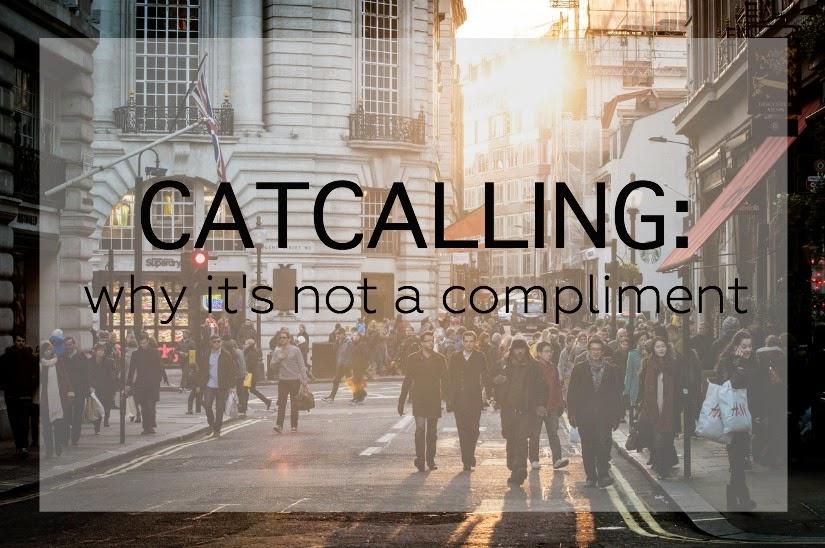There have been incessant debates in the media lately regarding whether or not “catcalling” is acceptable. Defined by oxforddictionaries.com as “to make a whistle, shout or comment of a sexual nature to a woman passing by,” catcalling is a classic phrase still used often. New York Post writer Doree Lewak has positioned herself as the front woman of pro-catcalling after sharing her thoughts through an article on the Post website. Not only was the article entitled “Hey Ladies! Catcalls are flattering – deal with it,” a statement that implies that all females feel this way, but the article went on to describe the feeling one gets from being catcalled as “nothing short of exhilarating, yielding an unmatched level of euphoria.” She claims women should find being whistled or howled at flattering. However, this could not be further from the truth. Not only is catcalling extremely degrading toward women, but it also makes women feel like they are constantly being judged based solely on their appearance as well as making them downright uncomfortable.
Even in modern society, men tend to be more privileged than women. Although some men do not live by this standard, others take advantage of their so-called power. By even exerting just the simplest degrading or sexist comment, they are adding to the pool of undignified remarks left by their fellow comrades. These comments tend to spark a chain reaction; one man catcalls a woman, and another man, not thinking much of it, follows his lead. By putting women in a vulnerable position just by walking down the street, men land in yet another superior role.
Fortunately, women have started to take action against street harassment. The Everyday Sexism Project is an organization using social media where people send in recounts of sexist actions that they have experienced first-hand. Additionally, reporter Leah Green from The Guardian, a liberal newspaper based out of the United Kingdom, hid a camera on her coat, took to the streets of London and used these real-life accounts of sexism on men. Their reactions to her taunts, insults and catcalls were thought-provoking; instead of responding with how they expect women to respond to their remarks, they acted confused and deterred her advances entirely. Not only is this a clear example of hypocrisy, but this project also revealed how degrading these comments can be to the one getting catcalled.
“If men put themselves in women’s shoes more often, maybe they would realize how ridiculous they can be,” said sophomore Amina Osmani.
For a man to pass judgment on a woman based on her looks is not only demeaning, but can also affect a woman’s long-term self-esteem. One insensitive action of these catcallers, such as snapping or whistling, can leave a woman feeling humiliated and self-conscious. A majority of women are filled with strong feelings of overall discomfort after being openly called out in public. Katarina Hybenova, writer for Bushwick Daily in Brooklyn, New York, passionately explained in her article titled “Catcalling is NOT Flattering: Why I Stopped Running in Bushwick” her feelings of terror and humiliation after being catcalled, and how she began to fear running alone in her own neighborhood so much so that she now only runs in the presence of her husband.
“To approve of catcalling is to approve of male dominance, enforced inequality and intimidation,” said Hybenova.
This should not be how society operates. Women should not feel this way just because men cannot suppress their primal instincts. By shouting out a demeaning comment, an insensitive remark on appearance or a discomforting gesture, the effects can be far worse than expected. In this day and age, for some men to still catcall, shame and degrade is completely unacceptable. With modern feminist movements and anti-sexist campaigns gaining popularity, catcalling needs to become an outdated practice.








